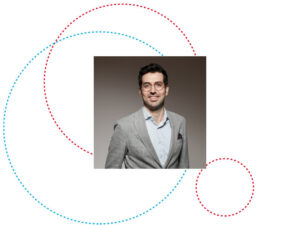Luxembourg and South Korea aim to be smart mobility and smart city hubs for Europe and Asia, respectively. Both countries are also important players in the space sector. That’s why in November 2022 the Government of Luxembourg organised an economic mission to South Korea to celebrate the ties and common technological goals that Luxembourg has with this Asian country.
Author: Prof. Raphaël Frank, head of UBIX (Ubiquitous and Intelligent Systems) research group.
The mission enabled us not only to share ideas about progress, but also share experiences with the different legal and cultural context of both countries. During the five days of the mission, we visited four cities: Seoul, Asan, Sejong/Daejeon, and Busan. We discovered the country and its technologies, and were invited by several Korean companies to hear about their business models and applications.
The agenda was packed and featured a few important milestones such as the opening of the Korea Space Forum, where a memorandum of understanding on future collaboration in space was signed by Luxembourg and South Korea. In Seoul, which was awarded Smart City of 2022 by the Smart City Expo World Congress, we visited the Seoul Smart City Center.
It was exciting to witness smart mobility in action. Autonomous shuttles are already being used in South Korea, as demonstrated by Ohmio. This company is expanding its operation to Europe by opening its European headquarters and research centre right here in Luxembourg. Ohmio already won an international call from the local railway operator and will provide two vehicles to be implemented in a Luxembourgish project.

From a technology adoption point of view, South Korea is ahead of Luxembourg. The country is a pioneer in using 5G technology as a facilitator of smart cities and smart mobility. For example, also impressive: South Korea’s smart solutions that optimise traffic lights with the aim of minimising congestion delays.
Of course, the legal and cultural context in South Korea is quite different from Luxembourg. This means that many technologies used by Koreans would require a different calibration of data protection in Europe. For example, South Korea offers an application that delivers a fine directly on your smartphone if you do not comply with traffic regulation. You can pay the fine directly with a few clicks. This might seem convenient but it’s not compatible with European privacy regulation.
So, if we would like to use such digital services in Europe, we must consider local cultural and legal conditions. Regulations like data protection frameworks in Europe are very different from Asia. And cultural differences are evident: Koreans make extensive use of smartphones and smart services for example. The pace of digital services is slightly faster there.
Both South Korea and Luxembourg have the objective of supporting innovations in the sectors of smart mobility, smart city, and space. That’s why both countries can learn from each other, and companies in South Korea and Luxembourg have fertile grounds to expand their activities beyond their borders.
Prof. Raphaël Frank is head of UBIX (Ubiquitous and Intelligent Systems) research group at at the University of Luxembourg’s Interdisciplinary Centre for Security, Reliability and Trust (SnT). He joined the Luxembourgish Trade Mission to South Korea from November 26 to December 1, 2022.
Read Prof. Frank’s original LinkedIn article, and connect with him here.
